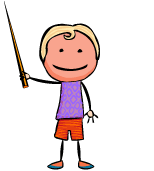Daisy International preschool follows the Polish ministry of education kindergarten elementary program, in addition to it we use intensive bilingual English education technique and Reggio Emilia approach.
The world we live in globalizes constantly, we observe and witness the changes, the seizing of the country boarders, we are all aware of the importance of speaking the English language. For the future generation this language knowledge became a necessity.
The best time to learn a foreign language for the brain is the time between birth and sixth year. This six year period can be divided into two periods: one from the birth till 3, the other from 3 to 6. During the first period the child obtains the knowledge of basic components and elements of the language structure, they learn the subject of speaking, how to describe activities, pronunciation, how to form questions and elementary statements and sentences. The second period between 3 and 6 is the time of widening the vocabulary by increasing the amount of words used in speech. This provides a faster development of speech and communications skills that includes connoting thoughts and needs.
The predisposition of children to learn a foreign language is much bigger than of adults. When children can learn a language in a natural way, adults try to learn it consciously and by controlling the process. Children though, possess the ability to hear the spoken language, then to try understanding it, repeat it and to learn the rules of the language.
Our aim is for the children to learn English during playing by hearing and learning through experience the spoken language every day in different situations, just like it happens in their mother language. To reach this aim we use bilingual intensive English method, in this method children during the everyday life of Daisy preschool are able to learn English easily, quickly and naturally through play.
In intensive bilingual English method, while a teacher speaks to the children in Polish, the other teacher communicates the same concept/idea in English. The English speaking teacher communicate with the children in English during the day as well. When our Polish speaking teachers say “Zaśpiewajmy i zatańczmy” the English speaking teachers say ”Let’s sing and dance” – in this way children naturally and without any effort get to know elementary phrases in English.,
They try to learn language elements like pronunciation, activity description, asking simple questions, forming simple language structures and sentence constructions by using this method.
Like all the other educational methods the intensive English learning method was prepared with special care and focus on details.
The program of learning English is prepared according to the needs and abilities of children, all educational materials are chosen according to the age, so that the kids can learn through playing.
 The Reggio Emilia Approach is an educational philosophy focused on preschool and primary education. It was started by Loris Malaguzzi and the parents of the villages around Reggio Emilia in Italy after World War II. They realized that it is in the early years of development that children are forming who they are as an individual. This thought let to creation of an educational program that is based on the principles of respect, responsibility, and community, exploration and discovery in a supportive and enriching environment. Loris Malaguzzi was influenced by the educational theorists such as Maria Montessori, Jean Piaget, Lev Vygotsky. More recently, the Reggio philosophy has been influenced by Jerome Brunner and Howard Gardner , the author of the multiple intelligences theory.
The Reggio Emilia Approach is an educational philosophy focused on preschool and primary education. It was started by Loris Malaguzzi and the parents of the villages around Reggio Emilia in Italy after World War II. They realized that it is in the early years of development that children are forming who they are as an individual. This thought let to creation of an educational program that is based on the principles of respect, responsibility, and community, exploration and discovery in a supportive and enriching environment. Loris Malaguzzi was influenced by the educational theorists such as Maria Montessori, Jean Piaget, Lev Vygotsky. More recently, the Reggio philosophy has been influenced by Jerome Brunner and Howard Gardner , the author of the multiple intelligences theory.
Firstly and most importantly the philosophy recognizes the child as a rich and competent learner, children therefore should have control over the direction of their learning; Children’s rights are promoted, because according to Malaguzzi „when a child is born a citizen is born”. Children are seen as theorists who need to test out their theories - Children must be able to learn through experiences of touching, moving, listening, seeing, and hearing; Children also have a relationship with other children and with material items in the world that they must be allowed to explore.
The role of our teacher is to be a co-learner and co-researcher who stands beside the child observes and helps. Loris Malaguzzi believed that the child has „100 Languages” which means that Children should have endless ways and opportunities to express themselves. The role of the adult is to observe and listen carefully. The approach sees our children strongly connected to their families and community. An essential element of the Reggio philosophy is the use of documentation of children’s learning. We make children’s thoughts and ideas visible and preserved through notes, written observations and photographs so that we can share and discuss possibilities for development.
 Principles of the Reggio Nursery:
Principles of the Reggio Nursery: